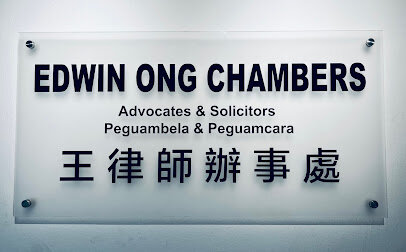Best Child Visitation Lawyers in Klang
Share your needs with us, get contacted by law firms.
Free. Takes 2 min.
Free Guide to Hiring a Family Lawyer
List of the best lawyers in Klang, Malaysia
About Child Visitation Law in Klang, Malaysia
Child visitation law in Klang, Malaysia, is a critical component of family law that primarily concerns the rights granted to non-custodial parents to spend time with their children. This area of law strives to ensure that children maintain a healthy and strong relationship with both parents, even when the family structure changes due to divorce or separation. The Malaysian court system generally emphasizes the child's best interests when determining visitation rights, encouraging amicable solutions that benefit the child's developmental and emotional needs.
Why You May Need a Lawyer
There are several situations where legal assistance may be required in matters of child visitation. These include: navigating custody disputes, drafting a visitation agreement that aligns with legal standards, modifying existing visitation arrangements due to changing circumstances, addressing allegations of child safety concerns, and resolving violations of agreed-upon visitation plans. Legal professionals can offer invaluable guidance and mediation throughout these complex, often emotionally charged, scenarios, ensuring that both parents and children's rights are protected.
Local Laws Overview
In Klang, Malaysia, child visitation laws operate under the national legal framework provided by the Law Reform (Marriage and Divorce) Act 1976, Guardianship of Infants Act 1961, and the Child Act 2001. Key aspects include the primary consideration of the child's welfare, the importance of parental roles in child upbringing, and the legal channels available for resolving disputes. Courts encourage parents to resolve visitation disputes amicably but will intervene when necessary to ensure fair and just arrangements are made.
Frequently Asked Questions
What is the usual schedule for child visitation?
Visitation schedules typically depend on mutual agreements between parents. A common arrangement might include alternate weekends, holidays, and special occasions. However, courts may set different schedules based on the child's best interests.
Can the agreed visitation schedule be changed?
Yes, visitation schedules can be modified if both parties agree. If not, courts can alter arrangements if there's a significant change in circumstances, such as relocation or a change in the child's needs.
Can visitation rights be denied or restricted?
Visitation rights can be restricted if the court finds sufficient grounds that a parent's presence might harm the child's welfare, which could include cases of abuse or neglect.
What should I do if the custodial parent denies me visitation?
You may need to seek legal assistance to enforce the visitation order. Courts can intervene to ensure that visitation rights are upheld.
Can grandparents or other relatives request visitation rights?
Yes, under certain conditions, other family members like grandparents can request visitation rights, especially if they have had a substantial role in the child's life.
How is a child's preference considered in visitation cases?
Courts in Malaysia may consider the child's preferences, particularly as they mature, but the ultimate decision centers on the child's best interests.
Is mediation required before going to court?
Malaysia encourages alternative dispute resolution methods, including mediation, to resolve visitation issues before seeking judicial intervention, fostering mutual agreement and communication.
What documents are needed for a visitation hearing?
You'll typically need identification, proof of parentage, any existing agreements or court orders, and evidence supporting your visitation case or claims regarding the child's welfare.
Can a non-custodial parent travel with the child?
Travel plans typically require mutual agreement and may be subject to court orders. International travel might also require additional legal permissions.
What are supervised visitations?
Supervised visitations occur when a neutral third party monitors the visiting parent-child interactions, commonly used when the child's safety is a concern.
Additional Resources
For more information and assistance, individuals can contact the Social Welfare Department (Jabatan Kebajikan Masyarakat), Malaysian Bar Council, or family law clinics in local universities. These entities provide vital support and resources for those navigating visitation legalities.
Next Steps
If you need legal assistance with child visitation, consider consulting a family law attorney in Klang. Schedule an initial consultation to discuss your situation and understand your rights and options. It is advisable to prepare relevant documentation ahead of time and make a list of questions or concerns to address during your meeting with the lawyer. This preparation will facilitate a thorough and informative legal consultation, allowing you to proceed effectively in securing visitation rights that align with the child's best interests.
Lawzana helps you find the best lawyers and law firms in Klang through a curated and pre-screened list of qualified legal professionals. Our platform offers rankings and detailed profiles of attorneys and law firms, allowing you to compare based on practice areas, including Child Visitation, experience, and client feedback.
Each profile includes a description of the firm's areas of practice, client reviews, team members and partners, year of establishment, spoken languages, office locations, contact information, social media presence, and any published articles or resources. Most firms on our platform speak English and are experienced in both local and international legal matters.
Get a quote from top-rated law firms in Klang, Malaysia — quickly, securely, and without unnecessary hassle.
Disclaimer:
The information provided on this page is for general informational purposes only and does not constitute legal advice. While we strive to ensure the accuracy and relevance of the content, legal information may change over time, and interpretations of the law can vary. You should always consult with a qualified legal professional for advice specific to your situation.
We disclaim all liability for actions taken or not taken based on the content of this page. If you believe any information is incorrect or outdated, please contact us, and we will review and update it where appropriate.










